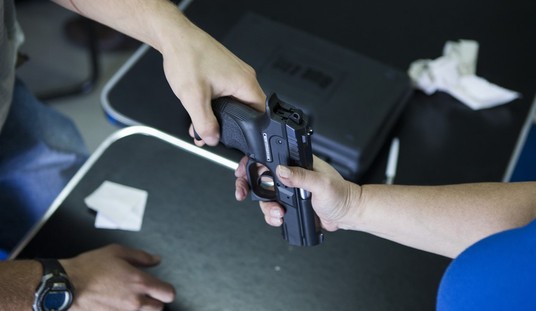I’m going to tell you something about the world that you probably already know, but folks on the progressive side of the aisle seem pathologically incapable of comprehending. There are some places in this world that are absolute hellholes. When it was claimed that President Trump called some of these places something that was less than pleasant, the left got up in arms, but he was right.
They’re not good places. There’s a reason why people in these countries want to come to the United States, after all.
Part of the reason they want to come here, even if they don’t realize it, is that we have a Second Amendment, which prevents stuff like this from happening here:
The pot-holed streets of Bangui’s Muslim quarter are lined with stalls plying their trade to a cacophony of honking horns and cars backfiring — a comforting image of bustling life in Central African Republic’s capital.
But beneath this veneer of normalcy, many traders in the flashpoint district of PK5 are on edge.
Last month, they agreed as one to stop paying protection money demanded by the numerous “self-defence” militias set up to protect the city’s Muslim minority.
Their defiance prompted an angry response from a militia chief known as “Force.” He gave them a week to get in line.
That deadline expired on January 25.
Now the shopkeepers wait nervously for what happens next.
“We’re going to put an end to this extortion, to this racket,” insists a trader called Karim Yahya, one of more than a thousand traders working in this densely-populated neighbourhood.
“It’s become a fallback for all the crooks,” agrees another who is close to the local traders association.
In other words, a group of would-be tyrants is demanding protection money from the innocent, who are faced with either paying or possibly losing everything, including their life.
These “militias” are nothing more than criminal gangs looking to exploit people, but the folks there are unarmed and unable to resist.
While we have law enforcement that tries to combat gangs trying similar stuff here in the United States, we also have a Second Amendment that means people have a right to be armed so they can defend themselves. We aren’t required to simply hope the police can deal with these thugs, we can arm ourselves and protect ourselves.
To be sure, a handful of groups have pulled similar stunts in the U.S. They’ve used a different term to describe themselves, mind you, but the principle is the same.
Yet generally, you tend to find these people in cities and states that have heavily restricted the right to keep and bear arms. Funny how that shakes out, isn’t it?
Our Founding Fathers wanted to explicitly protect the right to keep and bear arms as a bulwark against tyranny but make no mistake, tyranny doesn’t just come from an oppressive government. It can also come from criminal gangs who force businesses to give up a portion of their money for “protection.” It comes from anyone who tries to force their will on another simply because they’re stronger.
Guns equalize the playing field, making it so honest merchants can end the threat.
That’s something many other countries don’t have, and it shows in many parts of the world. It’s why the Second Amendment matters so much.








Join the conversation as a VIP Member